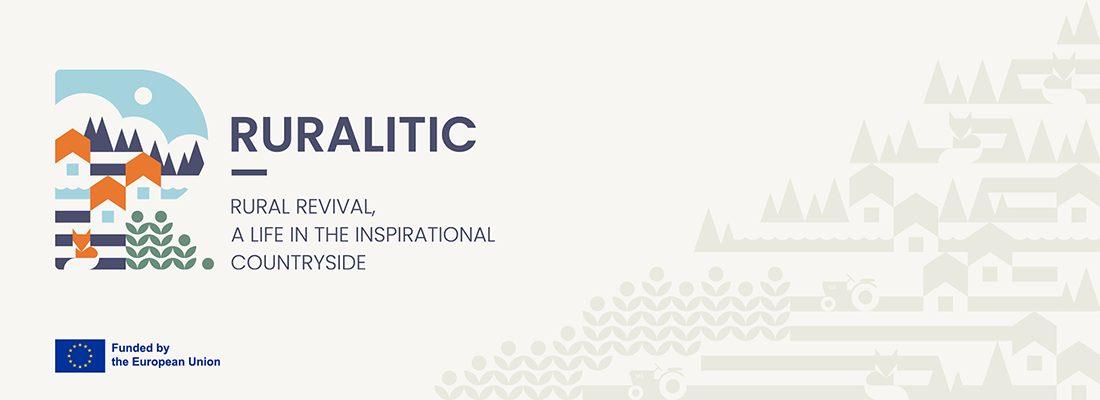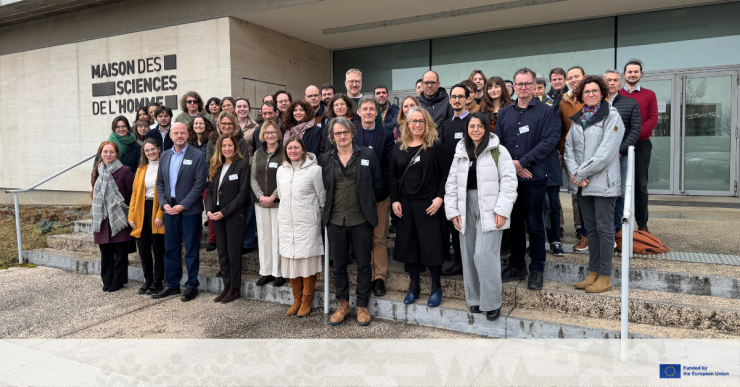Society and regional strategies Reading time 3 min
RURALITIC: Rethinking European rural areas in the face of new realities, challenges and transitions
Published on 13 February 2025

The evolving nature of rurality calls for a reassessment of its definition and role within broader territorial dynamics. Socio-demographic shifts, climate change, digitalisation, and evolving mobility patterns are reshaping rural landscapes, creating both opportunities and disparities. While some rural areas benefit from new economic and social dynamics, others face increased marginalisation. Addressing these challenges requires a nuanced approach that moves beyond conventional classifications and embraces the diverse realities of rural spaces.
Understanding and transforming rural territories
RURALITIC is based on a conceptual redefinition of "the rural" to develop new scientific and methodological tools. It will produce new data, surveys, indicators, and typologies, allowing for a refined analysis of contemporary rural dynamics. These frameworks will be used to assess the drivers of rural attractiveness, existing public policies, and innovative initiatives.
The RURALITIC programme will focus on defining the "European rural social spaces," highlighting the relationship between the economic and cultural capitals of its inhabitants, while examining the links between social positions, life trajectories, and perceptions of places.
Key objectives for concrete action
To achieve these ambitions, RURALITIC has set six main objectives:
- Redefining rurality as a multidimensional and relational concept, emphasising socio-economic and spatial interdependencies.
- Characterising the diversity of rural areas and their role in major transitions by integrating new indicators (real estate trends, digitalisation, environmental amenities) and focusing on evolving social dynamics.
- Identify key drivers of attractiveness specific to different types of rural areas and assessing how crises and policies shape population flows and perceptions.
- Evaluating post-Covid demographic impacts on public services, real estate markets, and well-being, with a focus on financial sustainability and social coherence.
- Assessing and co-developing public policies and local initiatives to revitalise rural areas.
- Developing future scenarios that envision resilient and thriving rural areas, where tradition, innovation, and environmental stewardship intersect to create sustainable socio-economic models.
As territorial inequalities widen and tensions over land use grow, RURALITIC offers a renewed approach tailored to the specificities of each rural area. The goal is to provide policymakers with science-based recommendations to foster balanced and inclusive development. Overall, the project will feed into the European Commission’s Long-Term Vision for Rural Areas which aims to create stronger, connected, resilient, and prosperous rural areas by 2040. It will do this by empowering rural communities, improving digital and physical connectivity, enhancing environmental sustainability and climate resilience, and fostering economic diversification.
Over its 48-month duration, the project aims to reshape public policies towards a more precise and adaptive approach to the realities of European rural areas.

Project features
RURALITIC Rural revival: a life in the inspirational countryside
Coordination by INRAE – 16 partners: INRAE + IA (FR), TUD (NL), FLUP (PT), Ined (FR), EUR (NL), US-EPRC (UK), U Lyon 2 (FR), UU (SE), RUC (DK), UAB (ES), UWK (AT), IRWiR (PL), ARCTIK (BE), IT (FR),IfA (UK), CDAF (FR)
European funding under Horizon Europe: € 6 494 227
Horizon Europe project no. 101181142
- Website – Landing Page: https://www.ruralitic.eu/
- LinkedIn: https://www.linkedin.com/company/ruralitic-eu/
- BlueSky: https://bsky.app/profile/ruralitic-eu.bsky.social
